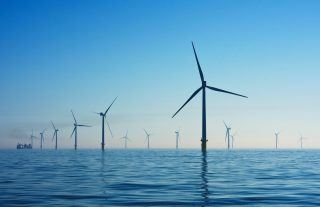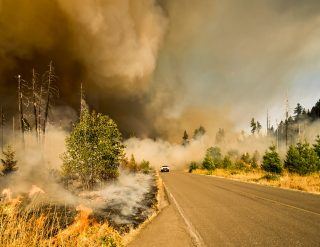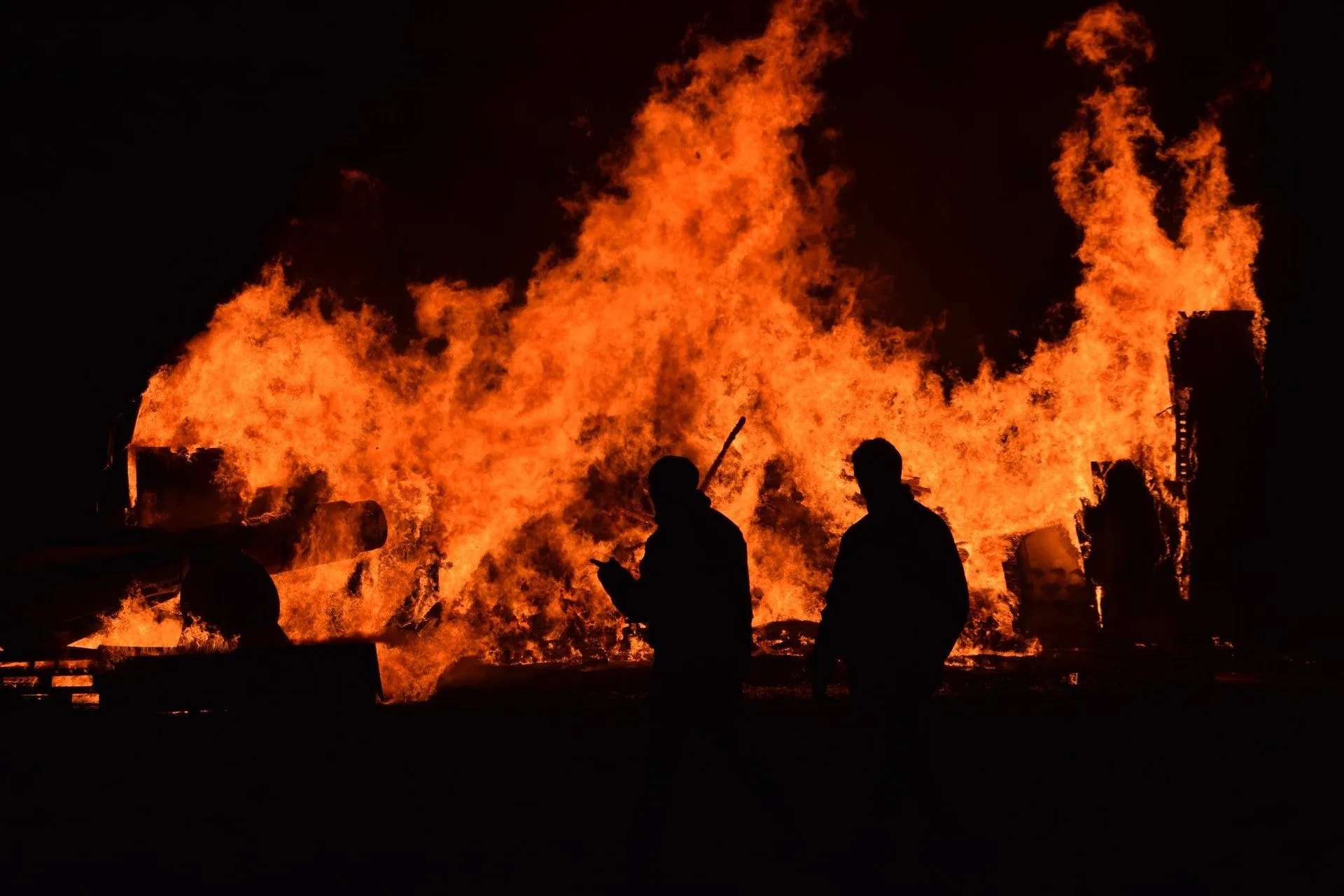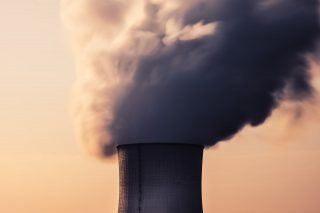In June 1986, Republican Senator John Chafee, chairman of the Senate Environment and Public Works Committee, convened a two-day hearing on climate change. It was during this hearing that Chafee warned about the rising build-up of greenhouse gases, stating that “the build-up of greenhouse gases, which threaten to warm the Earth to unprecedented levels. Such a warming could, within the next 50 to 75 years, produce enormous changes in a climate that has remained fairly stable for thousands of years.”
In 2015, almost every country signed up for the goals of the Paris climate agreement, with the intent to keep the rise in global temperatures well below 2C this century and to pursue efforts to keep it under 1.5C.
Unfortunately, despite prior warnings, a new U.N report about climate change has revealed that Senator Chafee was spot on and humanity is now in serious trouble.
UN Climate Change Report: We’re In The Endgame Now
“[This report] is a code red for humanity. The alarm bells are deafening, and the evidence is irrefutable: greenhouse gas emissions from fossil fuel burning and deforestation are choking our planet and putting billions of people at immediate risk,” said U.N. Secretary-General António Guterres.
The report, courtesy of the United Nations’ Intergovernmental Panel on Climate Change (IPCC), was compiled by 234 scientists who relied on more than 14 000 studies from across the world.

Photo by Nicholas Doherty on Unsplash
Approved by 195 governments, the report provides the most comprehensive and up-to-date summary of the physical science of climate change. As such, it is expected to be the focal point in November at the U.N. summit in Glasgow, where world leaders will discuss their plans to tackle emissions.
According to the report, if we don’t immediately and drastically reduce carbon emissions, then we risk disastrous climate consequences that will serve to disrupt everything around us.
The report’s key findings
- If we want to survive the worst of climate change, then we need to cut down global emissions by 25% by 2030 and about 50% by 2035.
- Global surface temperature was 1.09C higher in the decade between 2011-2020 than between 1850-1900.
- The past five years have been the hottest on record since 1850
- The recent rate of sea-level rise has nearly tripled compared with 1901-1971
- Human influence is “very likely” (90%) the main driver of the global retreat of glaciers since the 1990s and the decrease in Arctic sea-ice
- Greenhouse gases from human activities are responsible for 1.1C of warming since the second half of the 19th century

Photo by Thomas Millot on Unsplash
- It is “virtually certain” that heat extremes including heat waves have become more frequent and more intense since 1950s, while cold events have become less frequent and less severe
- If the world continues on its current trajectory, the rise could be 2.0C by 2060 and 2.7C by the century’s end.
- Atmospheric carbon dioxide levels are also at their highest point in 2 million years, thanks to agriculture and fossil fuels driving levels of nitrous oxide and methane to 800,000-year highs.
In addition to the report, the IPCC also shared an interactive atlas that shows how climate change will affect different areas of the globe, depending on the emission scenario.
What does the future hold?
- Temperatures will reach 1.5C above 1850-1900 levels by 2040 under all emissions scenarios
- The Arctic is likely to be practically ice-free in September at least once before 2050 in all scenarios assessed
- There will be an increasing occurrence of some extreme events “unprecedented in the historical record” even at a warming of 1.5C
- Extreme sea-level events that occurred once a century in the recent past are projected to occur at least annually at more than half of tidal gauge locations by 2100
- There will likely be increases in fire weather in many regions
We’re seeing the end in real-time
“It’s now become actually quite obvious to people what is happening, because we see it with our own eyes,” Corinne Le Quéré, a professor of climate science at the University of East Anglia and a contributor to Monday’s assessment, told the Washington Post,“You don’t have to have a PhD. You don’t need to be a climate scientist. You just need to be a person who looks out the window.”

Photo by Marcus Kauffman on Unsplash
This past Monday, California’s second-largest wildfire grew to nearly 500 000 acres. In Venice, tourists continue to waddle through ankle-deep water as a result of unseasonal floods. Over in China, much of its central Henan province was devastated by its heaviest rains in 1000 years. In Greenland, researchers have revealed that enough ice melted in a single day that could cover Florida in two inches of water. Madagascar is experiencing its worst drought in 40 years, leaving more than a million people without enough food and tens of thousands on the brink of starvation.
There’s literally plenty of evidence that proves that climate change is real, and we are in very real trouble. In fact, it may already be too late.
Is there hope?
“Lowering global warming really minimizes the likelihood of hitting these tipping points,” Dr. Friederike Otto, from the University of Oxford, UK, and one of the IPCC report’s authors, told the BBC, “We are not doomed.”
Now, while nations have failed to act quickly enough to honor the promises they made to meet the Paris Agreement goal of remaining “well below” 2 degrees Celsius of warming, they do seem to be now taking things more seriously.
“Today’s report makes for sobering reading, and it is clear that the next decade is going to be pivotal to securing the future of our planet … I hope today’s report will be a wake-up call for the world to take action now before we meet in Glasgow in November for the critical COP26 summit,” said British Prime Minister Boris Johnson.
We can’t wait to tackle the climate crisis.
The signs are unmistakable. The science is undeniable. And the cost of inaction keeps mounting.
— President Biden (@POTUS) August 9, 2021
In April of this year, President Biden revealed a plan to reduce 50-52% of America’s greenhouse gas pollution by 2030, and to reach net-zero emissions by 2050.
Additionally, last December, China’s President Xi Jinping shared the nation’s plan to cut its carbon dioxide emissions per unit of gross domestic product by more than 65% by 2030.
If these countries follow through with their promises, as well as any they are likely to make during the U.N. COP26 Glasgow summit, then the initial goal proposed during the Paris Agreement won’t sound so far-fetched.
What can I do?
“Governments have a major role in setting the conditions under which lifestyle changes can occur, through shaping policy, regulations and infrastructure investments. At the same time, it is necessary for citizens to be active participants in changing their lifestyles through taking steps to reduce personal emissions,” – IPCC report
According to a 2020 report from the U.N., around two-thirds of emissions are linked to households.
As such, there are a few things that we as individuals can do to help curb growing emissions. For one, might we suggest switching to a plant-based diet? Not only is it healthier, but a study from the University of Oxford found that switching to a plant-based diet can help to avoid the worst impacts of climate change. A previous study from the same university also found that a vegan diet could reduce carbon footprint by 73%.
Additionally, carpooling can also be a great way to reduce carbon emissions, as can using energy-efficient light bulbs, opting to shower with cold water, and keeping an eye out for energy-draining appliances.
References
Clark, M. A., Springmann, M., Hill, J., & Tilman, D. (2019). Multiple health and environmental impacts of foods. Proceedings of the National Academy of Sciences of the United States of America, 116(46), 23357–23362. https://doi.org/10.1073/pnas.1906908116
Poore, J., & Nemecek, T. (2018). Reducing food’s environmental impacts through producers and consumers. Science (New York, N.Y.), 360(6392), 987–992. https://doi.org/10.1126/science.aaq0216
Bruno P. Bruck, B.P, Valerio Incerti, V., Manuel Iori, M., Matteo Vignoli, M. (2017). Minimizing CO2 emissions in a practical daily carpooling problem, Computers & Operations Research, Volume 81, Pages 40-50, ISSN 0305-0548, https://doi.org/10.1016/j.cor.2016.12.003






![women [longevity live]](https://longevitylive.com/wp-content/uploads/2020/01/photo-of-women-walking-down-the-street-1116984-100x100.jpg)









